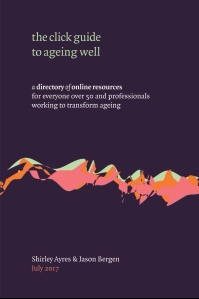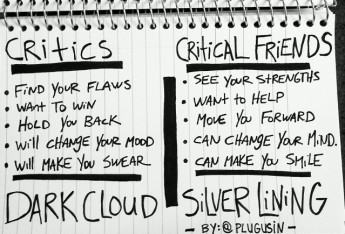
Finally there is an easy way to access amazing online resources which give you information, highlight innovations and tell you about the many organisations working in the ageing sector. The click guide to ageing well brings this information together in a single place. With sections ranging from community connections to sexual wellbeing the guide shows that living a good later life presents many opportunities along with the challenges!
In the digital age older people deserve and expect to look forward to a fulfilling later life supported by technology. The constant messages about “the elderly” being associated with isolation, loneliness and “bed blocking” need to be balanced with how digital technology can and is enhancing people’s lives. We need visionary digital leaders who are able to build collaborations and alliances across health, care, housing, charities, social enterprises, funders, digital innovators and the older people likely to use digital products and services. .
The click guide to ageing will help you to understand where the millions of pounds are being spent to support people to age well, We look forward to reporting in future newsletters on whether the current investment in innovative ways of working and digital technology is having a significant impact.
Older people now have more capacity, resources and access to knowledge than any previous generations. A quarter of the people who turned 50 in 2012 could live to be 100. We know that staying active, physically and mentally will support us to enjoy later life. The click guide to ageing well provides unique insights into how digital technology and social media are transforming the world of ageing
The click guide to ageing well will be of interest to everyone over 50 and the many professionals working to transform ageing who want to explore and understand how digital resources can enhance lives.
The Click Guide to Ageing Well is available to buy as an eBook for £4.99 and a paperback for £8.99 (plus p&p)
A special thank you is due to Jason Bergen @mryahbut my co-author who has so generously shared his extensive insights and knowledge as we researched and developed the guide. His support and patience has been invaluable.
I know that I am very fortunate to have access to the expertise and skills of James Souttar @jamessouttar Co-Founder of the Connected Care Network
We have been delighted at the response to our click guide to dementia which can be also be purchased from our website. We hope that you will find the click guide to ageing well equally valuable.
Diverse Alzheimers @DiverseAlz
Thumbs up to @shirleyayres for compiling a practical guide on services in Click Guide to Dementia as well as people seen as change makers
Well worth downloading – well researched resources for anyone with an interest in #dementia and #digital
I strongly recommend this ‘click guide’ to #dementia. Put together by @shirleyayres it’s an accurate account
This is a fantastic initiative @shirleyayres – a massive thank you from me and my fellow dementia carers.
What a fabulous new resource, I’m delighted to be included. I know carers will find this new digital directory of resources a wealth of info https://twitter.com/shirleyayres/status/788251065833709568 …
Andrew Corbett-Nolan @acorbettn
this is quietly impressive
The Click Guides are being produced by members of the Connected Care Network who believe passionately that technology can benefit all of our lives but only if information is accessible to enable people to make informed choices about which digital resources fit with their hopes, needs and aspirations.



